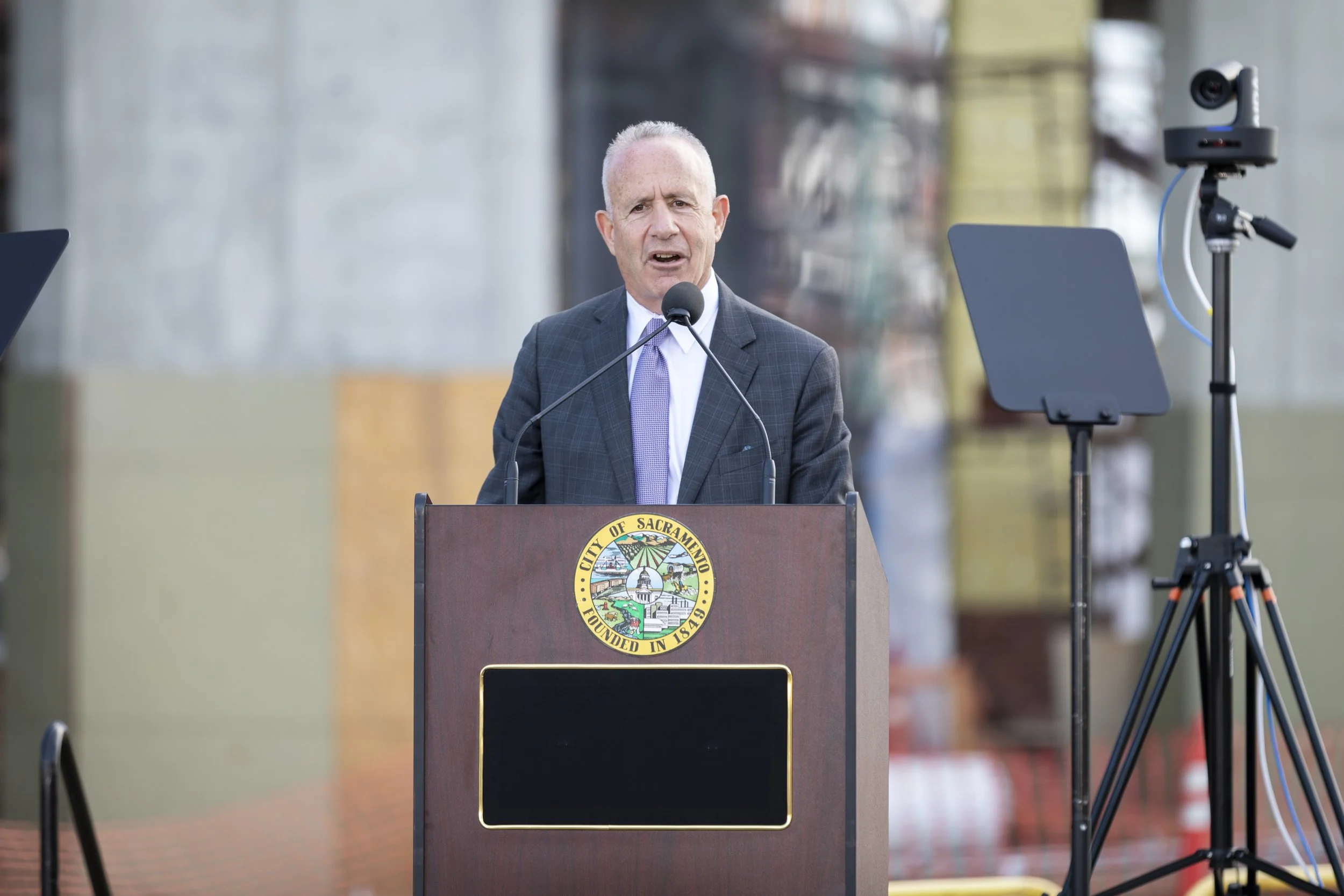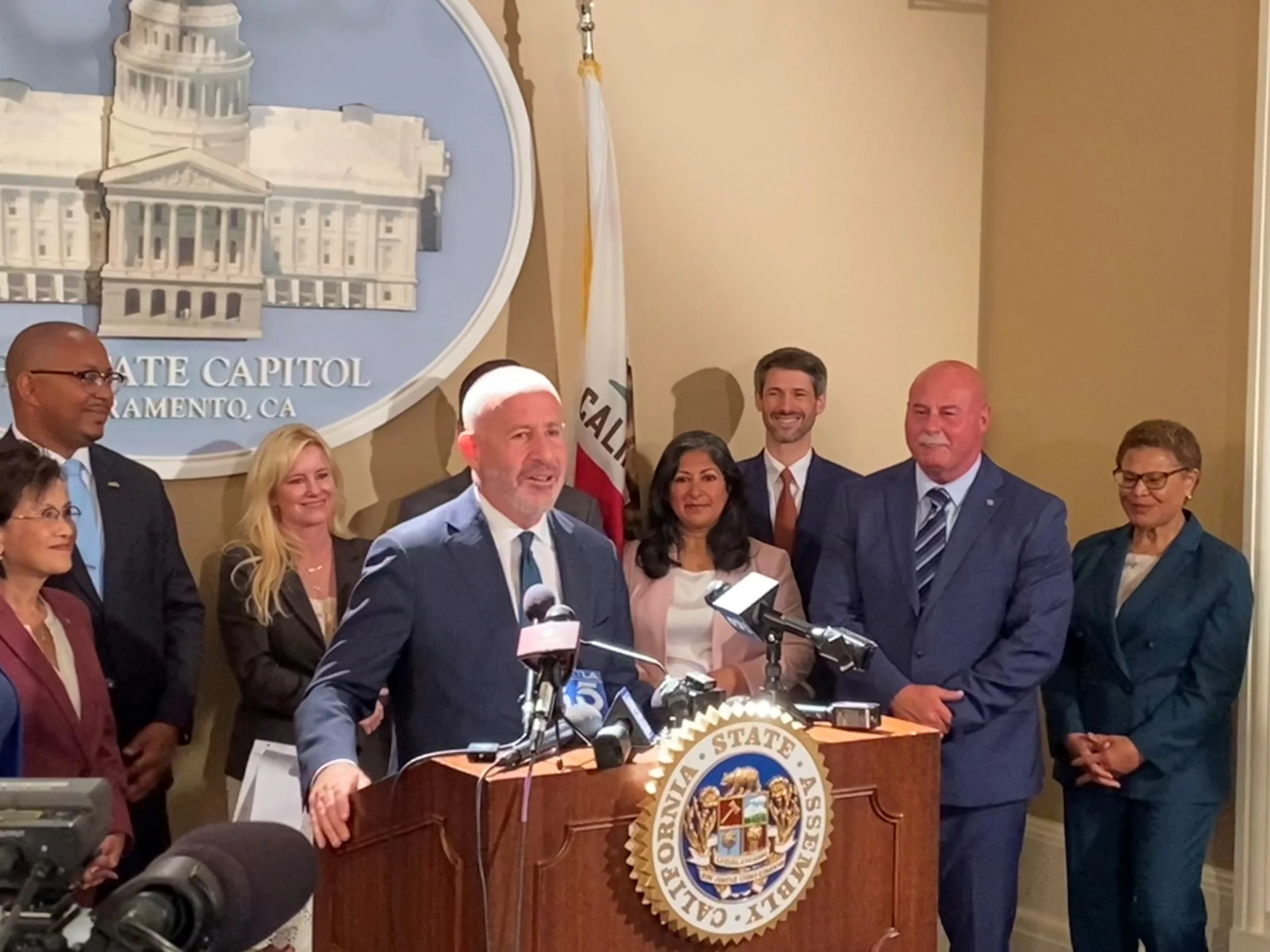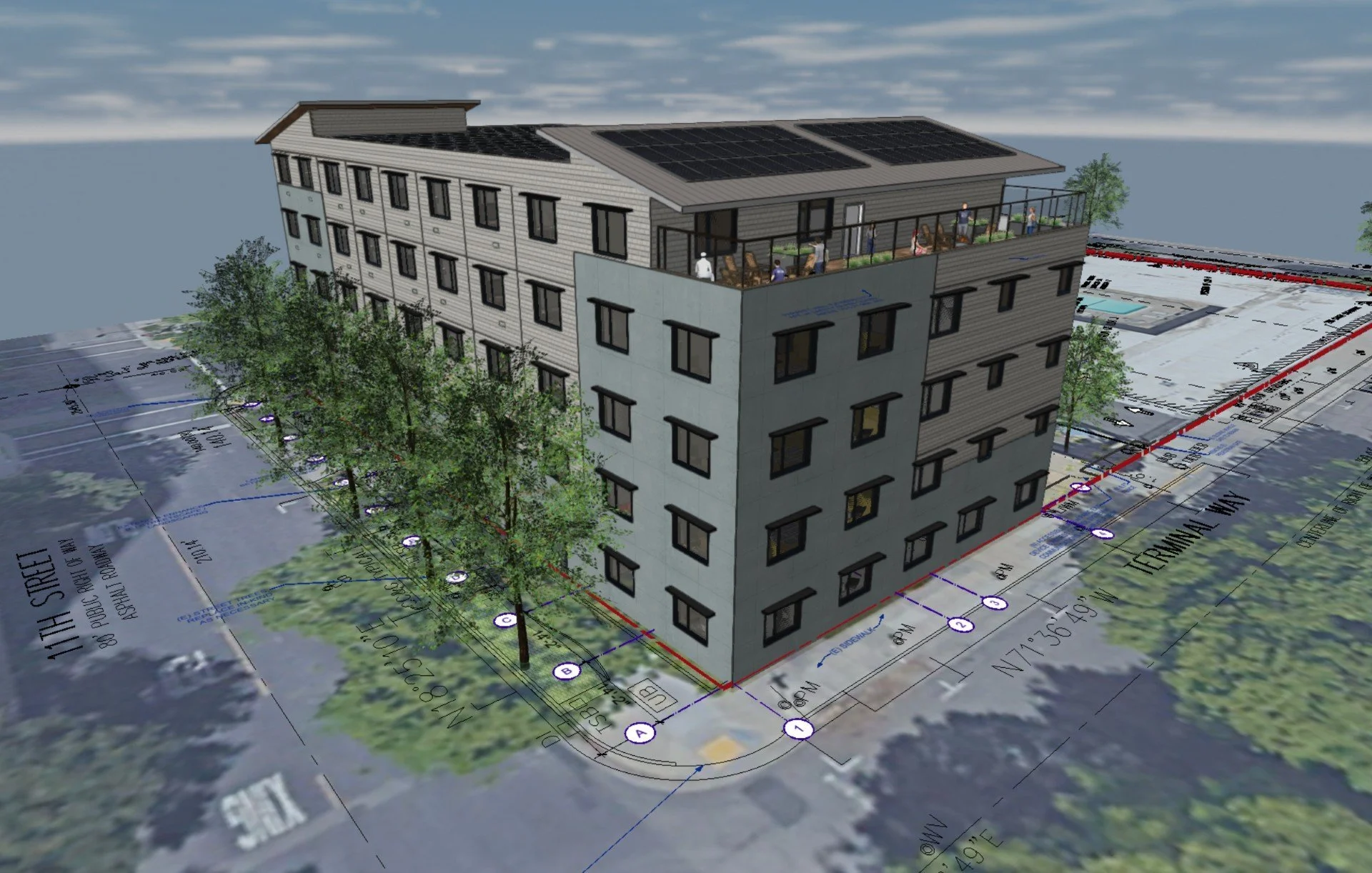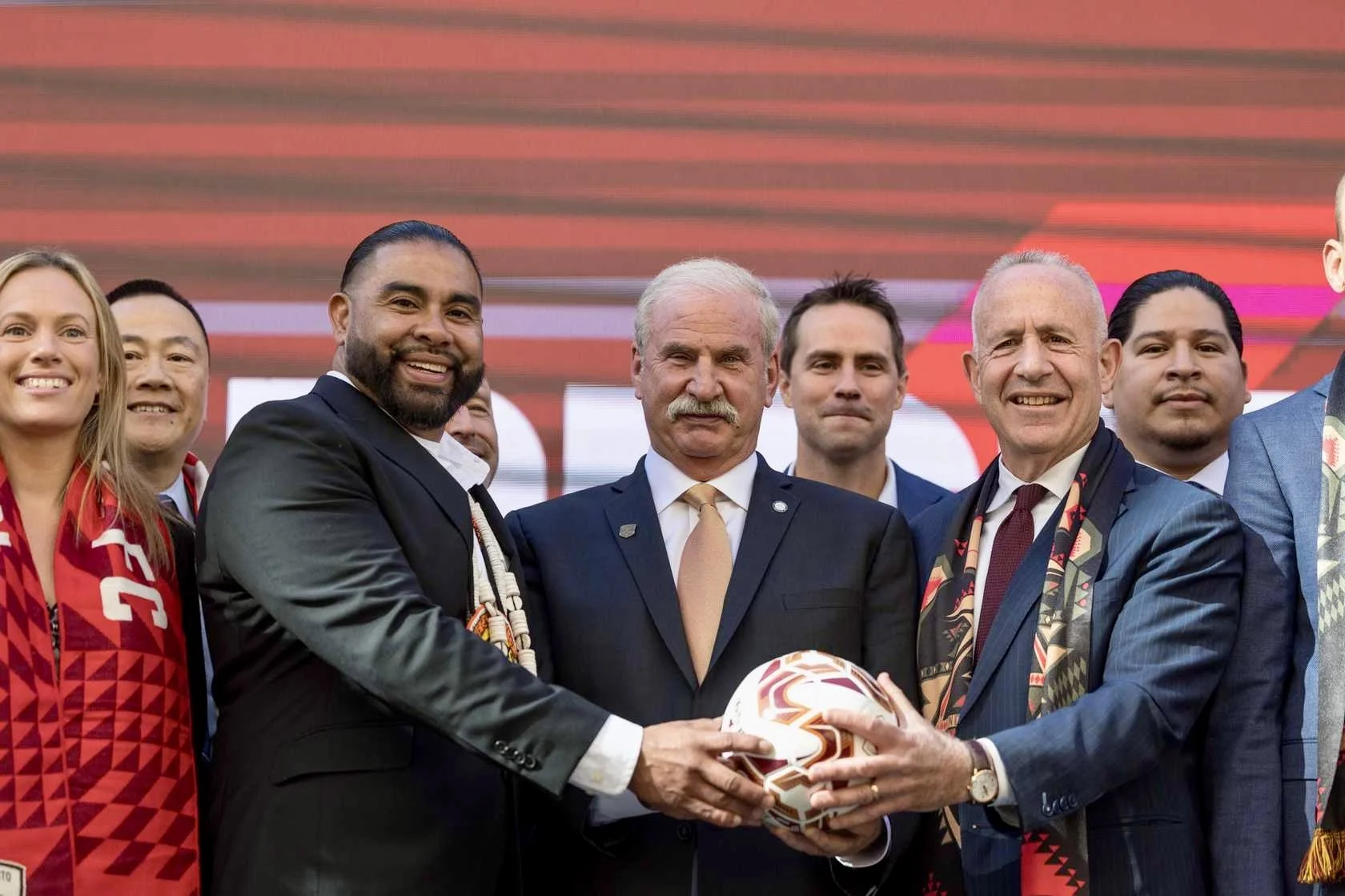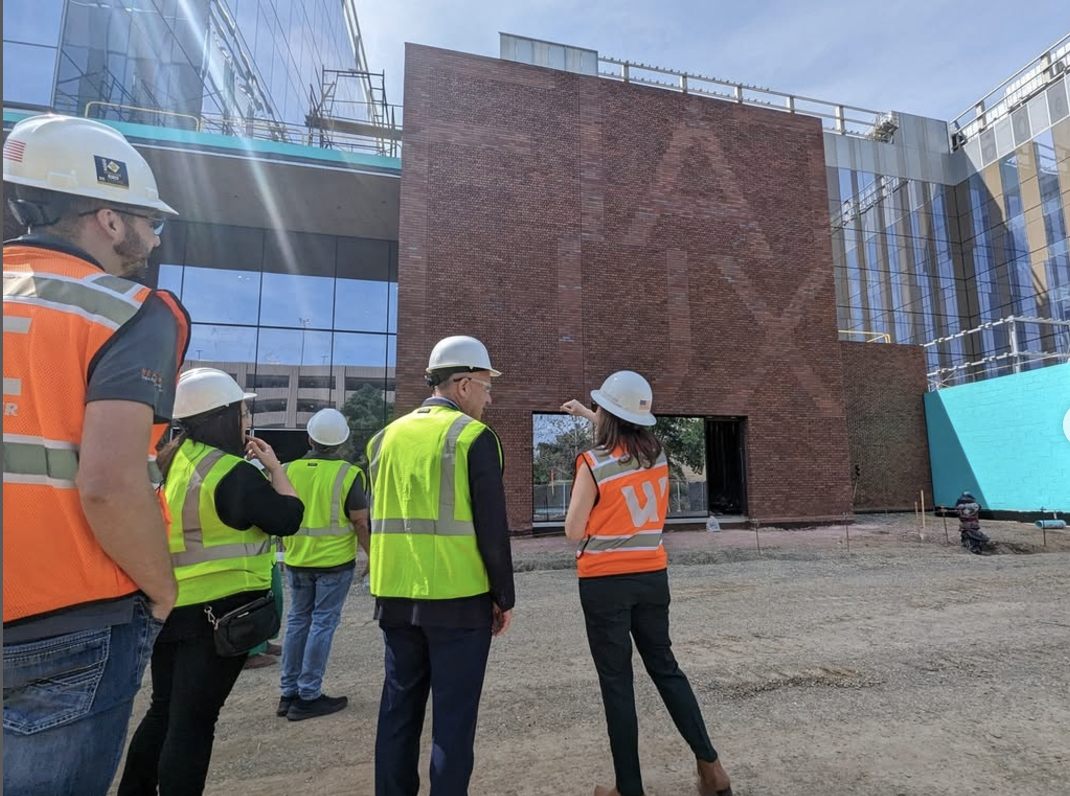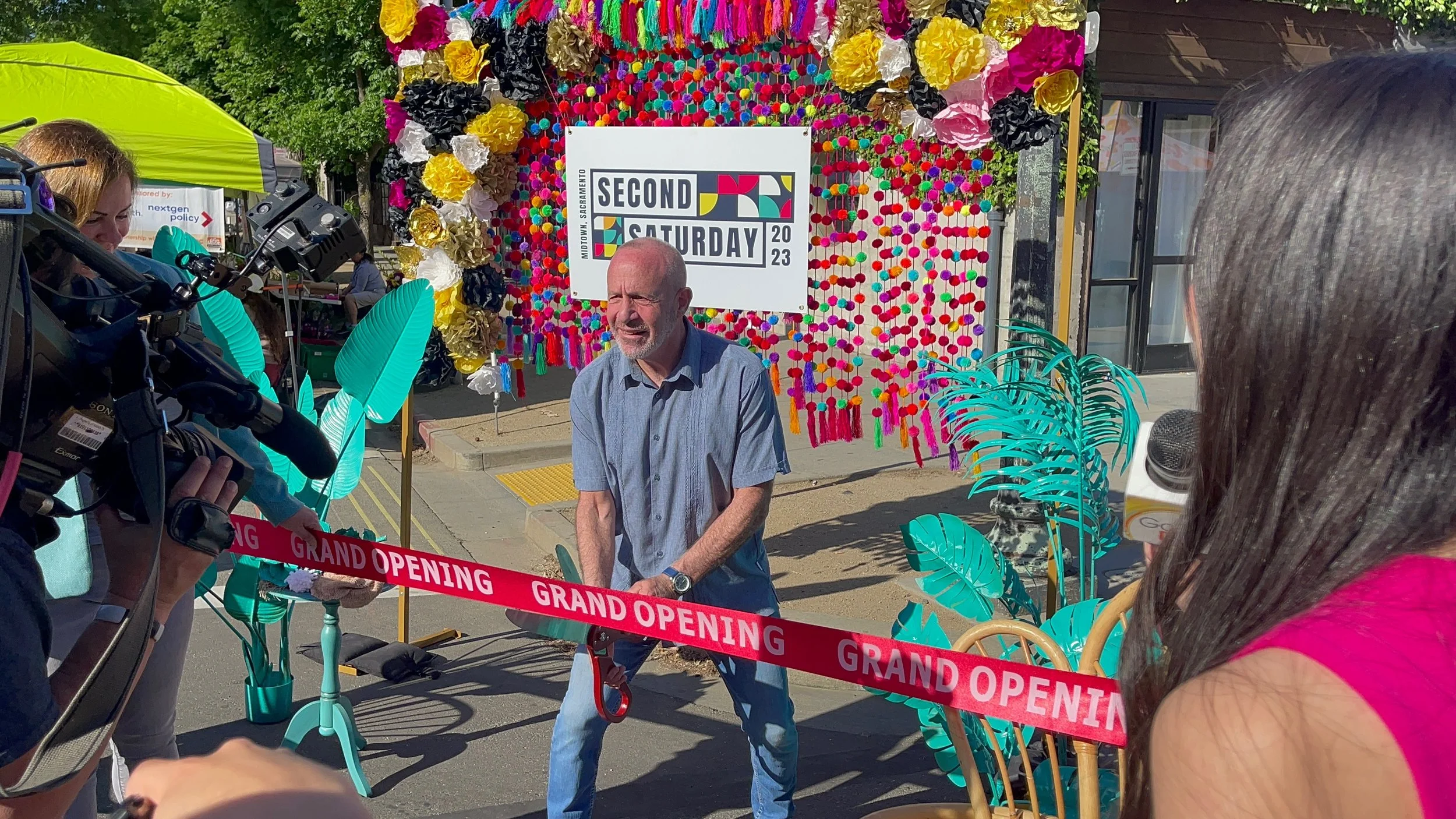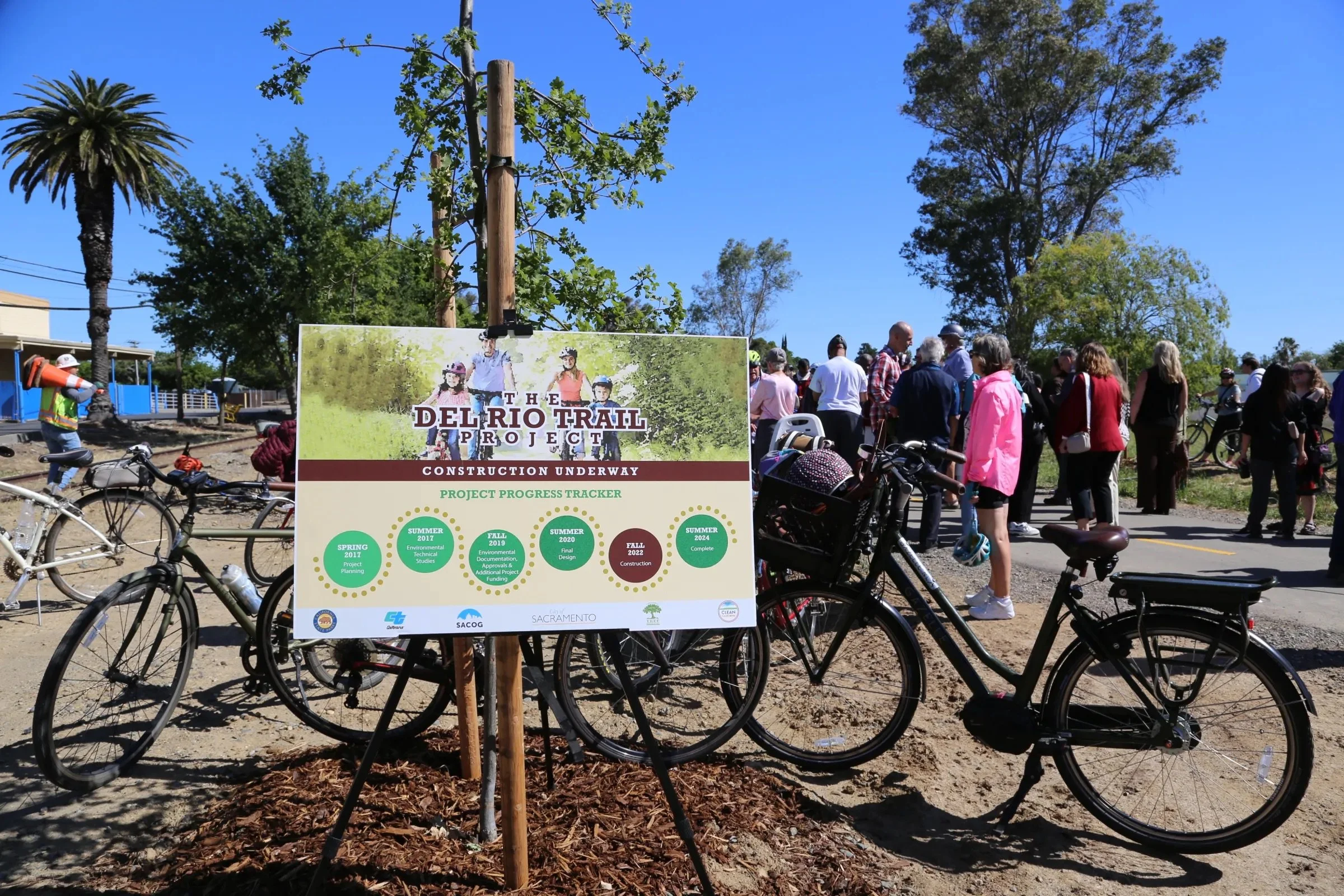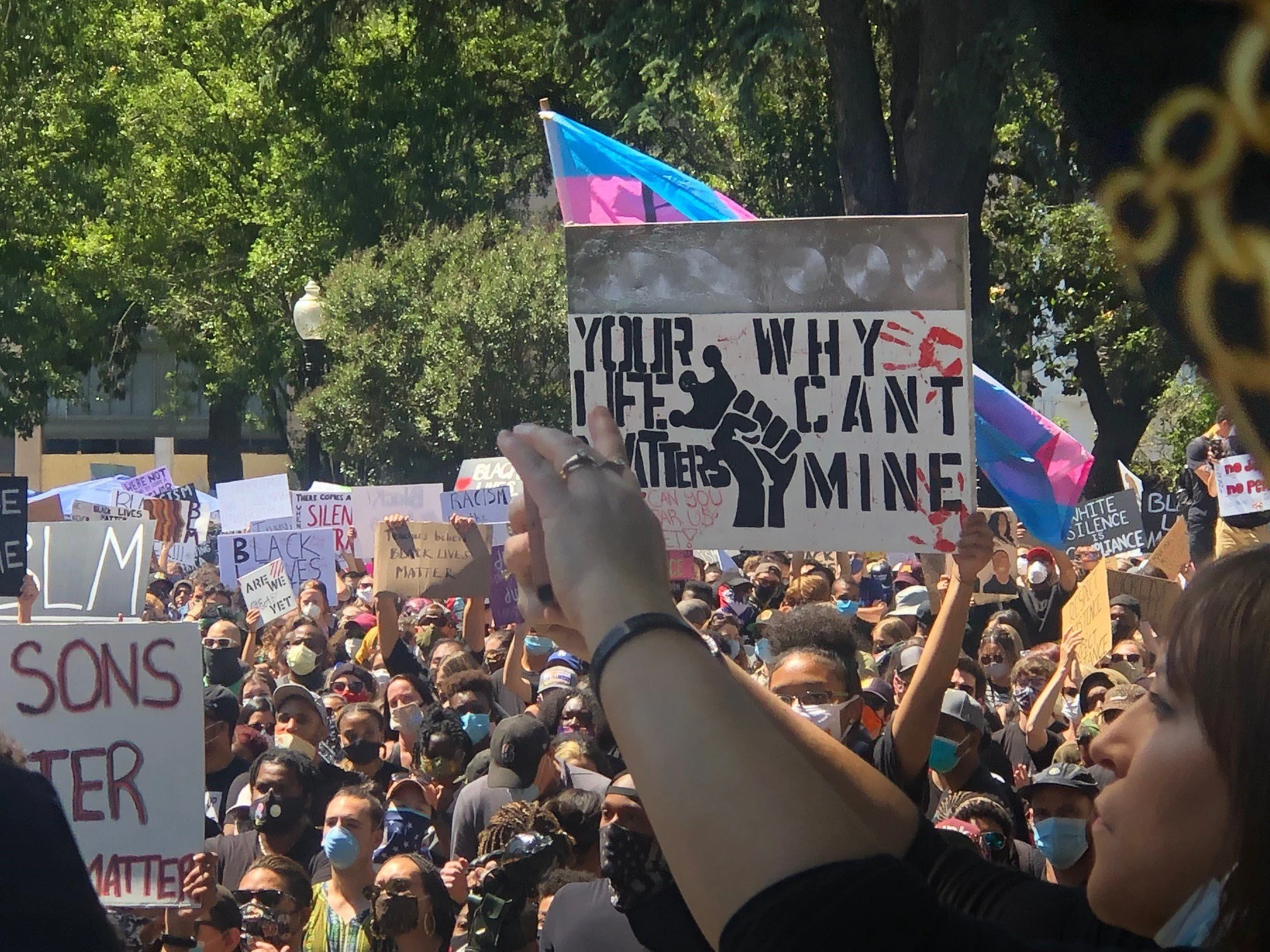8 Years of Transformative Leadership: Mayor Steinberg Delivers Results for Sacramento
Sacramento (Dec. 10, 2024) - Darrell Steinberg has been one of the most effective mayors in the history of Sacramento. He has dramatically scaled up the city’s response to the crisis of unsheltered homelessness, secured tens of millions of dollars for neighborhood economic development, and delivered new civic amenities while providing steady leadership during the pandemic and social upheaval of the past eight years. Here is a list of his accomplishments:
Homelessness and housing
Increased the city’s inventory of emergency shelter beds from less than 100 to 1,350, including two congregate sprung shelters, two tiny home campuses (a third will come online soon), the Emergency Outreach and Engagement Center and the master leasing of 350 motel rooms.
As leader of California’s Big City Mayors (then the Big 11) secured the first direct allocation of emergency shelter money from the state to cities. The city has so far been allocated nearly $90 million in state funding through that initial HEAP program and the subsequent iterations of HHAP.
Won the creation of the City’s new Department of Community Response to conduct outreach to homeless encampments and to respond to homelessness and mental health calls.
Secured $64 million Whole Person Care Pilot (WPC) that allowed the city to use Medi-Cal dollars for outreach, case management and housing coordination services for unhoused residents. Was the only city in the state to run Whole Person Care, which represented a new comprehensive approach to providing health care, services and housing homeless people who would otherwise wind up in emergency rooms. The success of Whole Person Care prompted Gov. Newsom to introduce Cal-AIM.
Negotiated and secured approval of legally binding partnership agreement with Sacramento County that includes 10 outreach teams with city, county and health plan representatives that will assertively intervene in street encampments to connect people to housing and services. The county agreed to open a 200-bed shelter in the city and to do “whatever it takes” to address the needs of people suffering from mental illness and substance abuse on city streets.
Obtained a commitment by Gov. Newsom to supply and install 175 tiny homes at a health care campus being built by Wellspace Health on Stockton Boulevard. The campus is scheduled ot open in October 2024.
Helped negotiate and secure Council approval for a rent stabilization ordinance that prevents rent gauging and requires just-cause for evictions.
Set aside 1,755 vouchers and public housing slots those experiencing or at risk of homelessness over three years.
Coordinated with the state and county to dedicate $44 million from the Mental Health Services Act, which the mayor authored, to provide mental health treatment to people experiencing homelessness.
Set aside $41 million in federal Covid stimulus funding for affordable housing. Embraced creative construction and financial models to expand the supply of affordable units, including the waiver of city impact fees for affordable construction. Under Mayor Steinberg’s leadership, the city has built far more affordable units per capita than Oakland, San Jose, San Diego, Fresno, San Francisco and Long Beach. Last year alone the city permitted 1,267 units of low-and very-low-income units.
Pushed for more than 50 changes to the housing approval process that earned Sacramento the coveted designation as California’s first Pro Housing City. Overall housing production soared during Mayor Steinberg’s tenure to levels not seen since 2007. The number of permits issued for accessory dwelling units jumped 32 percent in 2022 after soaring 124 percent in 2021.
Funding streams created by initiatives and legislation authored by the mayor when he served in the Capitol were a major source of affordable housing construction in Sacramento during his tenure as mayor. Three Homekey projects either opened or under construction in Sacramento were funded in part by $13.6 million from the Mental Health Services Act. The On Broadway and Mirasol affordable housing developments were awarded a total of $46.8 million from Cap and Trade auctions through the Affordable Housing and Sustainable Communities Program that Mayor Steinberg succeeded in starting when he was Senate President Pro Tem.
Secured $18.2 million in grants to support housing initiatives and address homelessness. The funds are allocated to two projects:
Roseville Road Campus Expansion: Awarded $12.35 million, this project will add 100 tiny homes and enhance outreach services, shelter, and housing support. The campus, which opened in January 2024, currently features 60 tiny homes and 40 trailers.
Street to Housing Program: Received $5.85 million to transition 100 households into stable housing through a rapid rehousing approach. The program offers rental assistance, wraparound services, and case management to ensure long-term housing stability.
Central Sacramento Studios expansion rendering
Economic Development & Tourism
Proposed and passed Measure N, which broadens the potential uses for the city’s Hotel Tax (TOT) to allow the money to be used on a wider array of projects that generate more hotel business. The measure’s passage will allow the city to resume a revamp of the Old Sacramento Waterfront that was halted by the pandemic and to develop a major youth sports facility in Meadowview.
Established partnership with UC Davis to create the Aggie Square innovation campus in Oak Park. Mediated and settled two lawsuits that threatened to derail the project. The resulting Community Benefits Agreement has already resulted in more than $40 million in affordable housing investment on the Stockton Boulevard Corridor, along with a $10-million fund to help keep people in their homes.
Successfully recruited investors to bring Major League Soccer to Sacramento, and directly participated in negotiations that resulted in the city receiving an MLS franchise. Also negotiated terms favorable to the city for the private construction of a new MLS stadium and surrounding entertainment district in the Railyards. While the initial investor pulled out, Mayor Steinberg continues to negotiate with investors to build a soccer stadium in the downtown railyard.
Attracted Fortune 500 Company Centene, bringing 5,000 jobs to Sacramento.
Proposed and won voter approval in 2018 to make Measure U permanent and raise it to a full cent, with a pledge to devote much of the new revenue to investing in the community. Sacramento has since spent more than $200 million in general/Measure U funds on such community priorities as neighborhood economic development, the creative economy, fighting climate change, libraries, youth and addressing homelessness.
Successfully pushed to invest the bulk of the funds received through the federal CARES and American Rescue Plan Covid relief funds in the community to help businesses and residents harmed by the pandemic. Nearly $149 million went out into the community in the form of support for small businesses, grants to artists and arts organizations, workforce training, youth programs and more.
Adopted job-incentive policy to help recruit employers with 500 jobs or more.
Secured inclusion of $30 million in state funding to help pay for infrastructure in the Railyards.
Secured funding and broke ground for the Powerhouse Science Center.
Secured $460m in state budget to build state-of-the-art courthouse in Railyards
Formed a partnership with the state and private businesses to bring the rebranded Old Sacramento Waterfront under joint management for the first time.
Oversaw on-time completion of the SAFE Credit Union Convention Center and Performing Arts Center, overcoming numerous obstacles to open in time for Hamilton.
Announced a $46 million plan to revitalize the Old Sacramento Waterfront. The initiative will leverage Transient Occupancy Tax (TOT) revenues to transform the historic district into a vibrant entertainment destination and enhance tourism City-wide. The Waterfront Reinvestment Program includes:
Renovating or replacing the existing public market buildings;
Repairing the boardwalk and K Street Barge;
Building a new playground with design input from the Native American tribes who originally inhabited the riverfront;
Enhancing the Old Sacramento docks to ensure safe public access and accommodate riverboat traffic; and
Activating new public spaces.
Proposed and passed a preliminary term sheet for an estimated $321 million in private investments to build a soccer stadium for Sacramento Republic FC and a live entertainment venue in The Railyards
Youth
Summer@CityHall participants 2024
Secured $7 million in state funding to train young people for government and non-profit jobs.
Secured nearly $2 million to launch the Thousand Strong paid internship program for high school students.
Hired the city’s first director of youth policy
Supported additional youth members of major commissions the appointment of a youth representative on City Council.
Secured city funding for pop-up events that give teens safe and fun things to do on Friday and Saturday nights.
Obtained additional city funding to begin development of library projects in Meadowview and North Sacramento.
Worked with fellow councilmember Steve Hansen and SMUD to ensure that the Museum of Science and Curiosity could be funded and built.
Worked with Councilman Jay Schenirer to fund free rides on Regional Transit for youth.
Obtained Council approval for investments in youth from new Measure U funding including:
$350,000 for the remaining cost of renovating South Sacramento’s Simmon’s Community Center, formerly CalSkate.
$350,000 to begin planning and design for La Familia’s Economic Development Opportunity Center.
$1.9 million for a new sports complex in Del Paso Heights.
Thousand Strong 2024 graduates
Public Safety
Backed the hiring of Kathy Lester, the City’s first female police chief
Steered city through the Stephon Clark shooting and George Floyd protests, giving voice to community concerns and threading a delicate balance between supporting peaceful protest and preventing violence and looting.
Allocated $8.5 million to improve security and add lighting in downtown and Old Sacramento.
Allocated $2.5 million to assist neighborhood organizations with violence prevention efforts.
Successfully pushed for Police Department reforms that include a new foot pursuit policy and a policy requiring body worn cameras remain activated.
Secured funding $2.5 million in funding for violence prevention groups to work directly with at-risk youth. This funding has been extended in the City Manager’s proposed 2023/24 budget.
Passed policy to release video footage of critical incidents involving the Sacramento Police Department.
Proposed and successfully pushed for the creation of the City’s first Inspector General to review use-of-force and sexual assault incidents involving officers.
Proposed and successfully pushed for the creation of the City’s Department of Community Response to respond to calls about homelessness and mental health issues that do not involve commission of a crime.
Established department-wide training on use of body cameras and less than lethal equipment.
Approved funding to hire 60 sworn personnel including additional Community Services Officers.
Expanded non-law enforcement solutions to improve public safety including:
Emphasis on youth.
Inclusive Economic Development strategy.
Holding the State of the City Address in Meadowview – the first time in memory this major event was held outside the Central City.
Arts
Led the nation in using $30 million in federal Covid relief funding to bolster the creative economy with grants to artists, arts and culture organizations and tourism.
This included small grants and direct support to artists struggling from COVID lockdown
Launched arts education partnership with regional school districts and secured $1 million in state grants to get started.
Worked to secure $1.5 million for iconic events in Sacramento.
Invested $500,000 in local artists via the Creative Economy Grant Pilot.
Adopted Creative Edge, a new blueprint for growth in arts and culture in Sacramento.
Successfully completed re-design and construction to the SAFE Performing Arts Center in time for opening of Hamilton despite numerous construction hurdles.
Secured $16.2 million to renovate Memorial Auditorium.
Opened the new B Street Theater, The Sophia.
Climate
Established Mayor’s Commission on Climate Change with West Sacramento Mayor Christopher Cabaldon. The Commission set the goal of achieving carbon neutrality by 2045.
Successfully pushed for implementation of one of the commission’s key recommendations, an ordinance requiring the electrification of new residential and commercial buildings starting in 2023.
Established the City’s Office of Climate Action and Sustainability.
Supported new building code requirements for recycled water systems.
Secured $44 million as Electrify America’s first Green City for ZEV infrastructure and vehicles as part of Volkswagen settlement. Elements include:
The nation’s largest free-floating electric car-share fleet.
Electric cars at low-income housing complexes throughout the city.
New fast electric chargers at airport and locations throughout the city.
A new electric shuttle between UC Davis and Sacramento.
New micro-transit buses on the Franklin Boulevard Corridor, which will eventually be powered by electricity.
Introduced shared rideables throughout the city, including electric assist bikes and scooters.
Racial Equity and Diversity
Established standing Racial Equity Committee and has since served as co-chair with Mayor Pro Tem Mai Vang.
Established the first senior advisor on racial equity position in the mayor’s office.
Launched SCORE initiative to evaluate City investments and policy’s through an equity lens. In the short-term, used an equity lens created by City staff to evaluate city expenditures of federal CARES Act and ARPA dollars.
Pushed to have the City of Sacramento adopt an official Land Acknowledgement
Collaborated with United Way on universal basic income program using $750,000 of ARPA funds
Worked with local advocates to repeal the 1988 no-cruising ordinance
Empowered residents with $1 million for participatory budgeting
Joined Mayors Organized for Reparations and Equity
Maintained Sacramento’s commitment to be a Sanctuary City despite threats from the Trump Administration.
Submitted an official letter to the Trump Administration stating the City of Sacramento would continue to accept refugees despite an Executive Order allowing cities to opt out of resettlement programs.
Established and funded the FUEL Network, which provides free legal help and training for immigrants fearful of or facing deportation.
Hired the city’s first Diversity and Equity Manager, Aimee Barnes
Opened the Unity Center at the California Museum
Stood with the Muslim Community after the Travel Ban Executive Order.
Worked alongside a diverse set of community groups to promote the improvements in the voting system with the implementation of the Voter’s Choice Act in 2018 and 2020.
Dedicated staff resources and time to assist with Census 2020.
In 2024 passed two resolutions that outline and reaffirm the City’s commitment to racial equity, and continue the exploration of potential reparations for African Americans in Sacramento. The resolutions lay the groundwork for a citywide work plan to collaborate with the community to address racial inequities and past harms.


